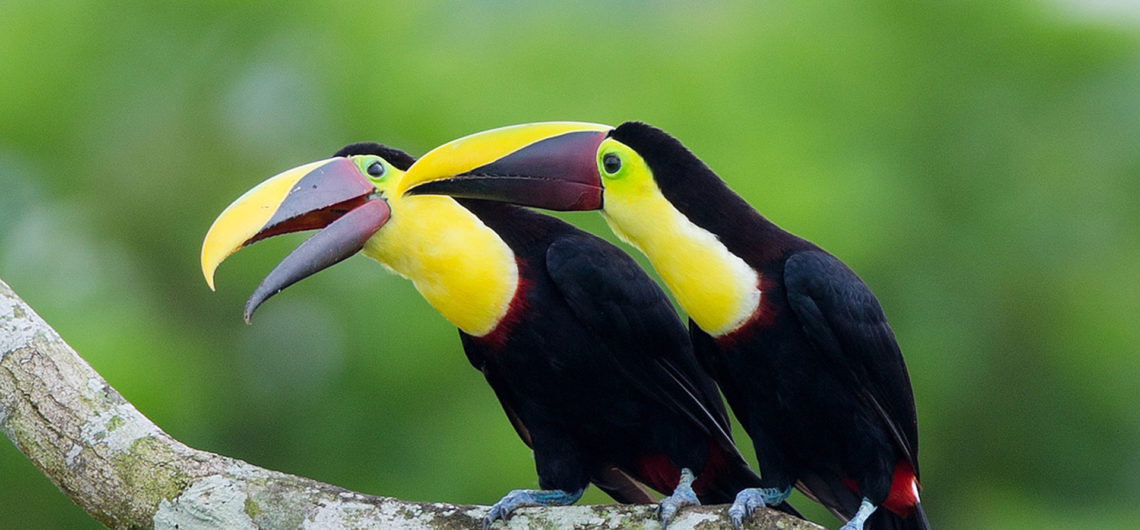World Ecotourism Summit
Presentation by Mr. Raúl Arias de Para
Representative of Panama, Central America and Mexico
Québec, Canada
May 18, 2002
More than 10 years ago, when I started in this fascinating world of ecotourism that has given me so much satisfaction, the first objective I had in mind was the conservation of the environment.
In fact, my first eco-tourism activity was carried out exclusively by the desire to protect a beautiful waterfall that was threatened by the disorderly influx of visitors without ecological awareness.
However, as I entered the world of ecotourism, I gradually realized that the raison d’être of ecotourism, when practiced as a business, must be the creation of jobs.
This statement must be explained and qualified.
Ecotourism as a business must play with the rules that prevail in the business world, otherwise it would not succeed. That’s how simple the thing is.
And what are the rules of the current world of business?
Profitability Customer satisfaction. Sustained profitability and satisfaction of the long-term interests of consumers and society.
These are the goals of modern business, businesses that are aware of global trends, businesses that look beyond profit in the next quarter.
Thus, futurist John Naisbitt, renowned writer whose works on world trends have sold more than 14 million copies worldwide, says in his book The Global Paradox published in 1995, almost seven years ago, ” When companies support sustainability, when they integrate a serious commitment to the environment into their corporate mission, they become something bigger than themselves, even larger than their respective industries, which become part of a global movement that it will change the world. “
On the other hand, and more recently, at the World Economic Forum held in Davos, Switzerland, in 1999, the Secretary General of the United Nations, Kofi Annan, presented the program called Global Compact to the world business leaders gathered there. The purpose of this program is to promote social and environmental values in the business world and establish five characteristics for the companies of the XXI century.
Their products and services contribute to the welfare of society.
Its behavior goes beyond current regulations and free market practices.
Your managers have an ethical behavior.
Its activities are responsible for the environment.
Its development includes support for the most disadvantaged people in the communities in which it operates.
Certainly, the criteria of the model business of the 21st century are far from those principles of savage capitalism that placed the short-term gain, and at all costs as the raison d’être of a business.
Let’s return now to the world of ecotourism as a for-profit activity and remember that I affirmed a few minutes ago that the first objective should be the generation of jobs.
This is so if we want sustained profitability and if we want to satisfy the long-term interests of consumers and society we must play an important role in alleviating poverty in our countries and, what better way to alleviate poverty than creating good jobs? paid.
Finally, I would like to address a few words to the representatives of the governments present here.
Tengan paciencia y resistan el canto de sirenas del turismo masivo y del turismo de cruceros. Denle una oportunidad al ecoturismo. Tomará más tiempo traer ecoturistas, es cierto, pero un ecoturista deja mucho más dinero en nuestros países y causa menos deterioro en nuestros ecosistemas y en nuestras culturas que el turista de masas. Por otro lado, es sabido que los “escapes” (“leakages”) son muchos menores en el ecoturismo que en el turismo masivo.
También necesitamos de Uds. legislación que reconozca que el ecoturismo es una actividad de muchos pequeños empresarios construyendo muchos pequeños hotelitos y no un gran hombre de negocios, no pocas veces extranjero, construyendo un gran resort.
De las ONG’s aquí presentes, necesitamos información actualizada y convincente que muestre las indiscutibles ventajas del ecoturismo sobre el turismo masivo. Los trabajos de David Díaz Benavides de la UNCTAD en torno a los “escapes” y las prácticas oligopolísticas y predatorias de los grandes operadores de turismo del primer mundo deben ser resumidos y distribuidos entre todos los interesados en este tema.
Por último, necesitamos de todos Uds., de todos los que nos agitamos en este fascinante mundo del ecoturismo, lleno de desafíos sociales, ambientales y culturales, un reiterado compromiso, un profundo compromiso, con nuestros compatriotas más necesitados, aquellos que pocos recursos tienen y muchas penurias aguantan, a ellos nos debemos, a ellos y a la Madre Tierra, nos debemos por sobre todas las cosas.
Muchas gracias.

